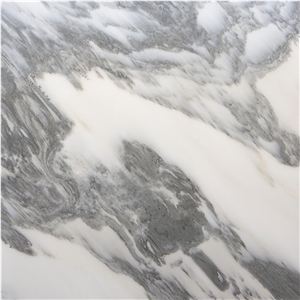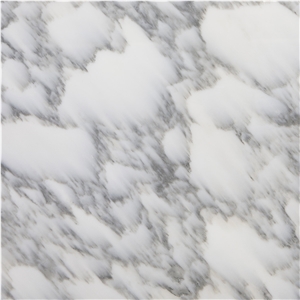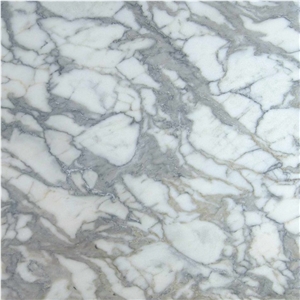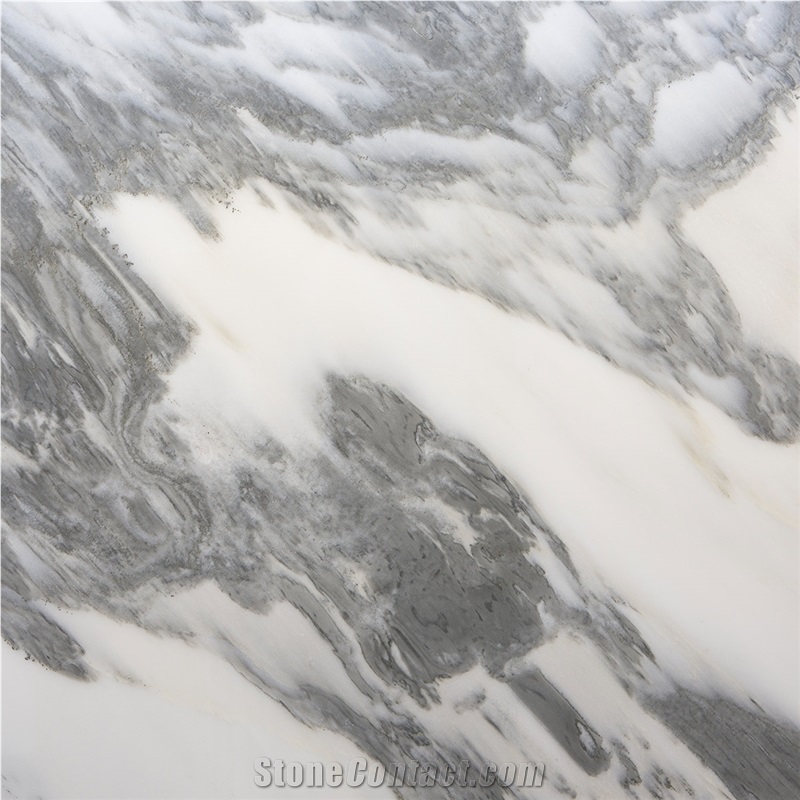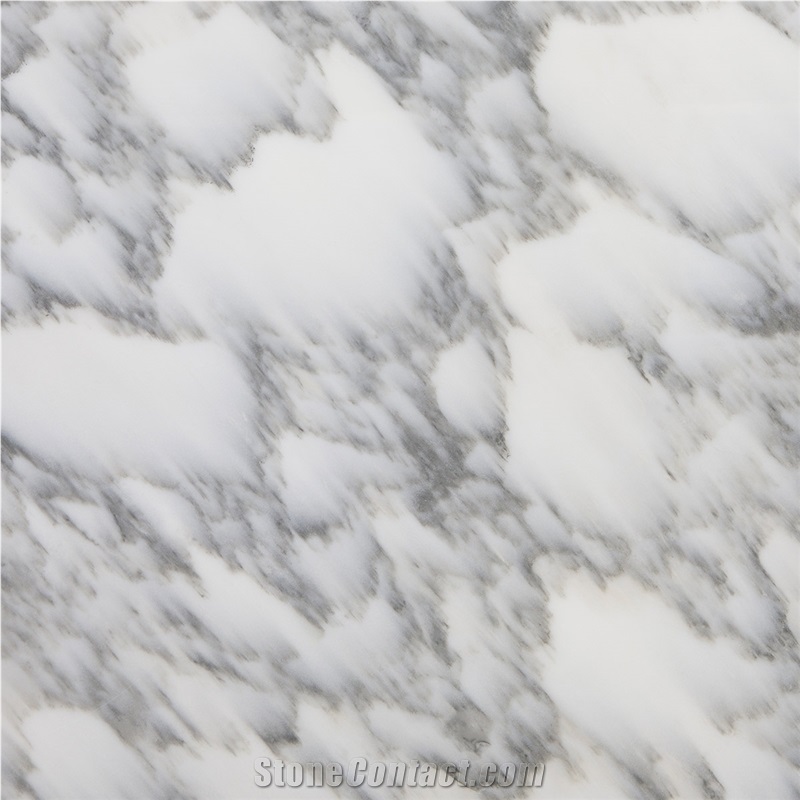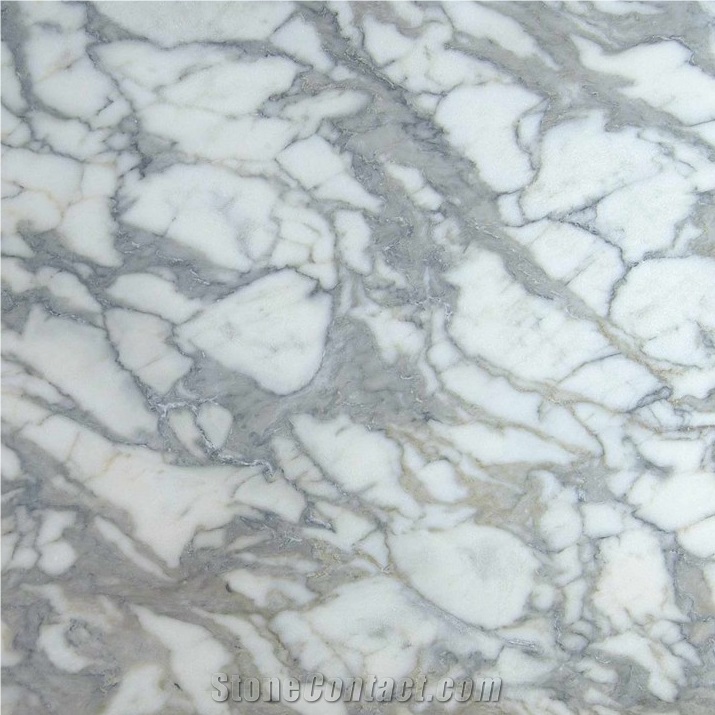Arabescato Ducale Marble
 Italy
(Provincia di Lucca, Toscana)
Italy
(Provincia di Lucca, Toscana)
Arabescato Ducale Marble is a kind of white and gray features marble quarried in Italy. This stone is especially good for Building stone, sinks, monuments, pool coping, sills, ornamental stone, interior, exterior, wall, floor , paving and other design projects. It also called Arabescato Marble,Arabescato Venato Marble,Arabescato Carrara Marble . Arabescato Ducale Marble can be processed into Polished, Sawn Cut, Sanded, Rockfaced, Sandblasted, Tumbled and so on.

Does Arabescato Ducale Marble easly stain?

Can I use Arabescato Ducale Marble for commercial bar countertop?

Can Italy's Arabescato Ducale Marble be used in a office?

Can Arabescato Ducale Marble be used as a tabletop?

Can Arabescato Ducale Marble be used as a mortar pestle?

What is the chemical composition of Arabescato Ducale Marble?

What thickness of Arabescato Ducale Marble kitchen countertop would be better?

What is the coefficient of friction of Water Jet Cut Italy's Arabescato Ducale Marble tiles?

Are there color variations of Italy's Arabescato Ducale Marble?

Can Italy's Arabescato Ducale Marble be used exterior applications in cold climates?

What should be the minimum thickness of the Arabescato Ducale Marble table top?

How thick is Italy's Arabescato Ducale Marble slabs?

Can Arabescato Ducale Marble be used for pool coping?

What is the physical properties of Arabescato Ducale Marble?

What are the different types of Arabescato Ducale Marble mosaics style?

How thin can Arabescato Ducale Marble be cut as tiles?

Can I use Arabescato Ducale Marble for kitchen countertop?

Is it safe to use Arabescato Ducale Marble mortar and pestle?

Can Italy's Arabescato Ducale Marble be used in landscaping?

How to repair the scratched Arabescato Ducale Marble kitchen countertop surface?

Can Arabescato Ducale Marble be used in a Turkish hammam as a wall and floor covering?

Is Italy's Arabescato Ducale Marble an expensive stone?

What grade is Italy's Arabescato Ducale Marble?

Does Arabescato Ducale Marble scratch easily?

How can I repair the scratched surface of the Arabescato Ducale Marble wall tiles?

With Arabescato Ducale Marble kitchen countertops, which color kitchen cabinets should I choose?

What is the difference between Arabescato Ducale Marble and Calacatta Extreme?

What thickness of Arabescato Ducale Marble backsplash tiles would be better?

How should I clean Arabescato Ducale Marble countertop?

How can I clean Arabescato Ducale Marble floor tiles?

Can Arabescato Ducale Marble be used as a kitchen cutting board?
-

 China
China
 4YRDiamond members are premium members on platform, providing members with comprehensive approach to promoting their products, increasing products exposure and investment return to maximize.
4YRDiamond members are premium members on platform, providing members with comprehensive approach to promoting their products, increasing products exposure and investment return to maximize.
 Verified Supplier is for prove company authenticity,including business license,trade license and effective office space,to enhance buyers' trust to suppliers and their products, reducing communication costs.
Verified Supplier is for prove company authenticity,including business license,trade license and effective office space,to enhance buyers' trust to suppliers and their products, reducing communication costs.
Contact Supplier
-

 China
China
 5YRDiamond members are premium members on platform, providing members with comprehensive approach to promoting their products, increasing products exposure and investment return to maximize.
5YRDiamond members are premium members on platform, providing members with comprehensive approach to promoting their products, increasing products exposure and investment return to maximize.
 Verified Supplier is for prove company authenticity,including business license,trade license and effective office space,to enhance buyers' trust to suppliers and their products, reducing communication costs.
Verified Supplier is for prove company authenticity,including business license,trade license and effective office space,to enhance buyers' trust to suppliers and their products, reducing communication costs.
Contact Supplier
-

-

 China
China
 8YRDiamond members are premium members on platform, providing members with comprehensive approach to promoting their products, increasing products exposure and investment return to maximize.
8YRDiamond members are premium members on platform, providing members with comprehensive approach to promoting their products, increasing products exposure and investment return to maximize.
 Verified Supplier is for prove company authenticity,including business license,trade license and effective office space,to enhance buyers' trust to suppliers and their products, reducing communication costs.
Verified Supplier is for prove company authenticity,including business license,trade license and effective office space,to enhance buyers' trust to suppliers and their products, reducing communication costs.
Contact Supplier
-

 China
China
 8YRDiamond members are premium members on platform, providing members with comprehensive approach to promoting their products, increasing products exposure and investment return to maximize.
8YRDiamond members are premium members on platform, providing members with comprehensive approach to promoting their products, increasing products exposure and investment return to maximize.
 Verified Supplier is for prove company authenticity,including business license,trade license and effective office space,to enhance buyers' trust to suppliers and their products, reducing communication costs.
Verified Supplier is for prove company authenticity,including business license,trade license and effective office space,to enhance buyers' trust to suppliers and their products, reducing communication costs.
Contact Supplier
-

Xiamen Asian Stone Imp.& Exp. Co.,Ltd.
 China
China
 13YRDiamond members are premium members on platform, providing members with comprehensive approach to promoting their products, increasing products exposure and investment return to maximize.
13YRDiamond members are premium members on platform, providing members with comprehensive approach to promoting their products, increasing products exposure and investment return to maximize.
 Verified Supplier is for prove company authenticity,including business license,trade license and effective office space,to enhance buyers' trust to suppliers and their products, reducing communication costs.
Verified Supplier is for prove company authenticity,including business license,trade license and effective office space,to enhance buyers' trust to suppliers and their products, reducing communication costs.
Contact Supplier
The request includes: 1. surface finished, size 2. quantity required






